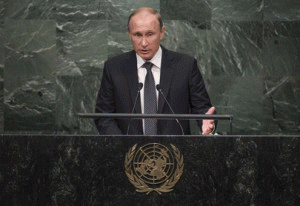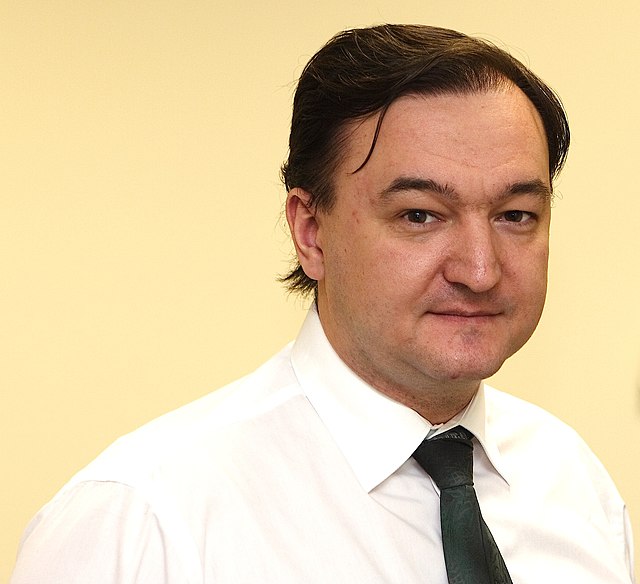While he loosely accused a number of Americans of felonies, Browder continued to claim that Magnitsky was a crusading "lawyer" who uncovered a $230 million tax-fraud scheme carried out ostensibly by Browder's companies but, which, according to Browder's account, was really engineered by corrupt Russian police officers who then arrested Magnitsky and later were responsible for his death in a Russian jail.
Browder's narrative has received a credulous hearing by Western politicians and media already inclined to think the worst of Putin's Russia and willing to treat Browder's claims as true without serious examination. However, beyond the self-serving nature of Browder's tale, there are many holes in the story, including whether Magnitsky was really a principled lawyer or instead a complicit accountant.
According to Browder's own biographical description of Magnitsky, he received his education at the Plekhanov Institute in Moscow, a reference to Plekhanov Russian University of Economics, a school for finance and business, not a law school.
Nevertheless, the West's mainstream media -- relying on the word of Browder -- has accepted Magnitsky's standing as a "lawyer," which apparently fits better in the narrative of Magnitsky as a crusading corruption fighter rather than a potential co-conspirator with Browder in a complex fraud, as the Russian government has alleged.
Magnitsky's mother also has described her son as an accountant, although telling Nekrasov in the documentary "he wasn't just an accountant; he was interested in lots of things." In the film, the "lawyer" claim is also disputed by a female co-worker who knew Magnitsky well. "He wasn't a lawyer," she said.
In other words, on this high-profile claim repeated by Browder again and again, it appears that presenting Magnitsky as a "lawyer" is a convenient falsehood that buttresses the Magnitsky myth, which Browder constructed after Magnitsky's death from heart failure while in pre-trial detention.
But the Magnitsky myth took off in 2012 when Browder sold his tale to neocon Senators Ben Cardin, D-Maryland, and John McCain, R-Arizona, who threw their political weight behind a bipartisan drive in Congress leading to the passage of the Magnitsky sanctions act, the opening shot in the New Cold War.
A Planned Docudrama
Browder's dramatic story also attracted the attention of Russian filmmaker Andrei Nekrasov, a well-known critic of Putin from previous films. Nekrasov set out to produce a docudrama that would share Browder's good-vs.-evil narrative to a wider public.

Russian President Vladimir Putin addresses UN General Assembly on Sept. 28, 2015.
(Image by (UN Photo)) Details DMCA
Nekrasov devotes the first half hour of the film to allowing Browder to give his Magnitsky account illustrated by scenes from Nekrasov's planned docudrama. In other words, the viewer gets to see a highly sympathetic portrayal of Browder and Magnitsky as supposedly corrupt Russian authorities bring charges of tax fraud against them.
However, Nekrasov's documentary project takes an unexpected turn when his research turns up numerous contradictions to Browder's storyline, which begins to look more and more like a corporate cover story. For instance, Magnitsky's mother blames the negligence of prison doctors for her son's death rather than a beating by prison guards as Browder had pitched to Western audiences.
Nekrasov also discovered that a woman who had worked in Browder's company blew the whistle before Magnitsky talked to police and that Magnitsky's original interview with authorities was as a suspect, not a whistleblower. Also contradicting Browder's claims, Nekrasov notes that Magnitsky doesn't even mention the names of the police officers in a key statement to authorities.
When one of the Browder-accused police officers, Pavel Karpov, filed a libel suit against Browder in London, the case was dismissed on technical grounds because Karpov had no reputation in Great Britain to slander. But the judge seemed sympathetic to the substance of Karpov's complaint.
Browder claimed vindication before adding an ironic protest given his successful campaign to prevent Americans and Europeans from seeing Nekrasov's documentary.
Next Page 1 | 2 | 3 | 4 | 5 | 6
(Note: You can view every article as one long page if you sign up as an Advocate Member, or higher).






